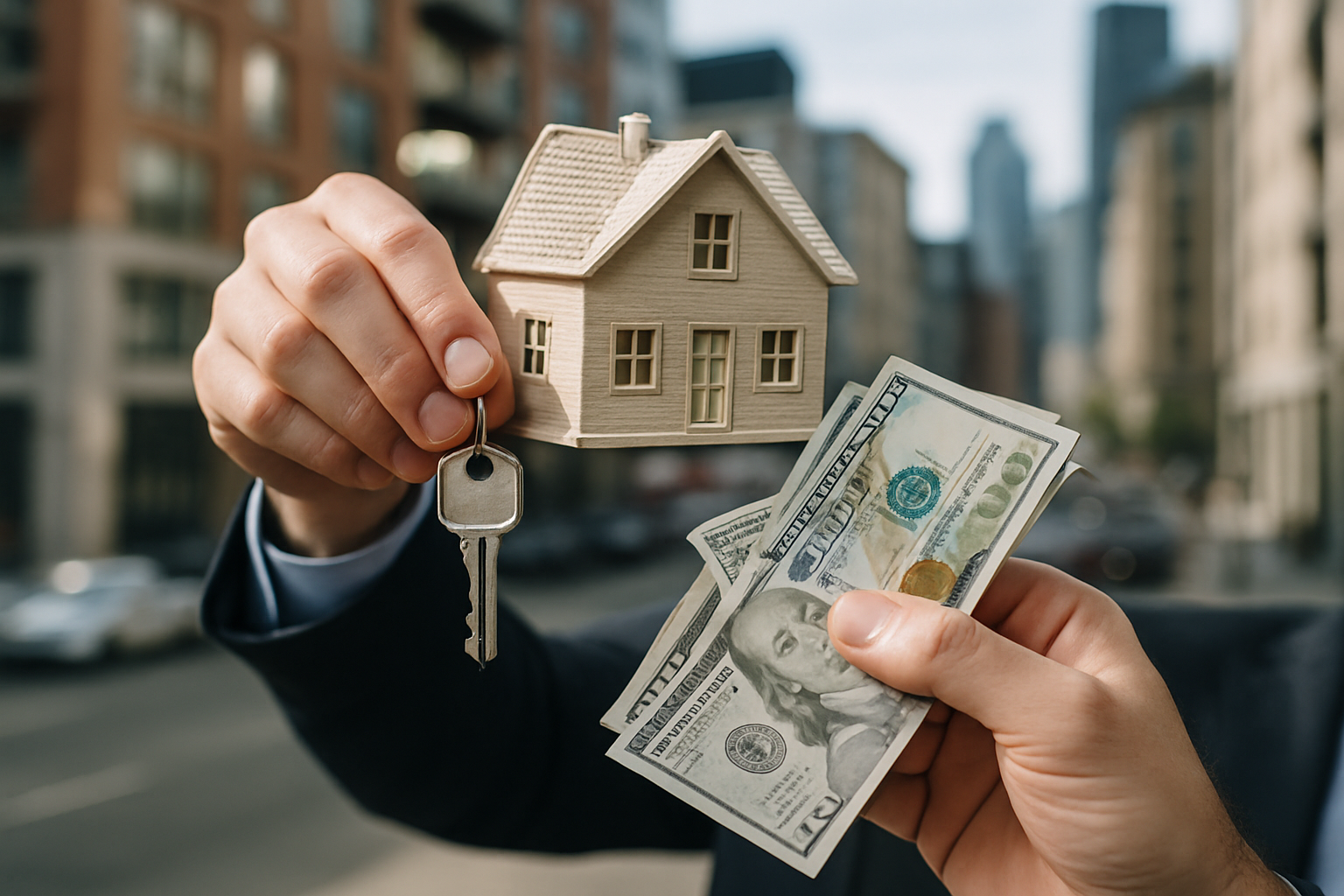How to Find and Buy Abandoned Houses for Sale Near You at Affordable Prices
Abandoned houses can be an attractive option for bargain hunters, real estate investors, or those looking for a unique fixer-upper project. These properties often come with lower price tags and the potential for significant returns on investment. However, the process of finding and purchasing abandoned houses requires careful research, legal considerations, and due diligence. This article will guide you through the essentials of locating and acquiring abandoned properties in your area.

What Qualifies as an Abandoned Property?
An abandoned property is typically a house or building that has been left unoccupied for an extended period, with the owner having ceased to maintain or pay taxes on the property. Several factors can contribute to a property being considered abandoned:
-
Prolonged vacancy: The property has been unoccupied for months or years.
-
Neglect: Visible signs of disrepair, such as overgrown vegetation, broken windows, or deteriorating structures.
-
Unpaid taxes: The owner has stopped paying property taxes, leading to potential foreclosure.
-
Utility disconnection: Services like water, electricity, and gas have been shut off.
-
Legal issues: The property may be involved in inheritance disputes or other legal complications.
It’s important to note that not all vacant properties are abandoned. Some may be seasonal homes or properties undergoing renovation. Proper investigation is crucial to determine if a property truly qualifies as abandoned.
Where Can You Find Local Abandoned Homes?
Locating abandoned houses in your area requires a combination of research methods and resources. Here are some effective ways to find these properties:
-
Drive around neighborhoods: Look for signs of neglect or vacancy in areas you’re interested in.
-
Check county records: Visit your local county assessor’s office or their website to search for properties with unpaid taxes or those in foreclosure.
-
Online real estate databases: Websites like Zillow, Realtor.com, or Foreclosure.com often list abandoned or distressed properties.
-
Local real estate agents: Connect with agents who specialize in distressed properties or have knowledge of abandoned homes in the area.
-
Government auctions: Attend local government auctions where foreclosed or tax-delinquent properties are sold.
-
Bank-owned property listings: Check with local banks for their REO (Real Estate Owned) listings of foreclosed properties.
-
Networking: Join local real estate investment groups or forums to get leads on abandoned properties.
Remember that some abandoned properties may not be actively listed for sale, so a proactive approach is often necessary to uncover these opportunities.
What Legal Steps Are Required for Purchase?
Purchasing an abandoned property involves several legal steps and considerations:
-
Title search: Conduct a thorough title search to ensure there are no liens, unpaid taxes, or other legal issues attached to the property.
-
Ownership verification: Identify the legal owner of the property, which may require working with local government offices or a title company.
-
Due diligence: Investigate any outstanding debts, taxes, or legal claims against the property.
-
Negotiation: If an owner is found, negotiate the purchase directly or through a real estate agent.
-
Tax sale or auction: For properties with unpaid taxes, participate in tax sales or auctions organized by local governments.
-
Court approval: In some cases, especially for properties in probate or with unclear ownership, court approval may be necessary to complete the purchase.
-
Redemption period: Be aware of any redemption periods during which the original owner can reclaim the property by paying off debts.
-
Proper documentation: Ensure all necessary paperwork, including the deed transfer, is completed and filed correctly.
It’s highly recommended to work with a real estate attorney experienced in abandoned property transactions to navigate these legal complexities.
How Much Do Abandoned Houses Usually Cost?
The cost of abandoned houses can vary significantly based on location, condition, and the circumstances of the sale. Here’s a general pricing guide:
| Property Type | Condition | Estimated Price Range |
|---|---|---|
| Urban Abandoned House | Poor condition | $5,000 - $50,000 |
| Suburban Abandoned House | Moderate condition | $30,000 - $100,000 |
| Rural Abandoned Property | Varies | $1,000 - $50,000 |
| Tax-Foreclosed Property | Varies | Can start as low as $500 at auction |
| Bank-Owned (REO) Property | Generally better condition | 30-60% below market value |
Prices, rates, or cost estimates mentioned in this article are based on the latest available information but may change over time. Independent research is advised before making financial decisions.
It’s important to factor in additional costs when considering an abandoned property purchase:
-
Renovation expenses: Abandoned houses often require significant repairs and updates.
-
Back taxes: You may need to pay outstanding property taxes.
-
Legal fees: Attorney costs for navigating the purchase process.
-
Inspection costs: Thorough inspections are crucial for abandoned properties.
-
Utility reconnection fees: Expenses to restore essential services.
-
Insurance: Potentially higher premiums due to the property’s condition.
While abandoned houses can offer attractive initial purchase prices, the total investment required to make the property livable or sellable can be substantial. Careful financial planning and a realistic assessment of renovation costs are essential for a successful purchase.
In conclusion, finding and buying abandoned houses can be a rewarding venture for those willing to invest time, effort, and resources. By understanding what qualifies as an abandoned property, knowing where to look, navigating the legal requirements, and realistically assessing costs, you can potentially find great deals on properties with significant potential. However, it’s crucial to approach these purchases with caution, thorough research, and professional guidance to ensure a successful and legally sound transaction.




